
Dogs seem capable of being remarkably smart, whether they are shepherding flocks of sheep, quickly learning new tricks, or reading our moods and our minds. But different breeds have different abilities, and some are a lot smarter than others.
24/7 Wall St. reviewed the top 10 breeds on American Kennel Club’s list of the smartest dogs.
The smartest breeds are typically products of both nurture and nature — bred for certain traits, carefully trained and used as working dogs. They come in all different shapes and sizes. Some are of fairly recent origin, while others have been with us for millennia.
Some dog breeds are so smart and dependable that we entrust them with our safety and wellbeing, whether as guide dogs for the blind or in search and rescue. Some are smart but don’t have much work to do, yet they still enrich our lives.
Click here to see the 10 smartest dog breeds.
24/7 Wall St. reviewed the 10 smartest breeds on American Kennel Club’s list of the smartest dogs. We added information related to each breed’s personality, trainability, and other factors. The list was created by AKC experts who used breed standards, written by the Parent Clubs, that specify size, activity level, intelligence, and other attributes.

1. Border collie
> Height: 18-22 inches
> Weight: 27-45 pounds
> Life expectancy: 10-17 years
The border collie is widely considered to be the most intelligent dog breed. In fact, it was bred for its intelligence and obedience and has tremendous herding abilities and protective instincts. The border collie makes a great pet but needs more physical exercise and mental stimulation than many other breeds.
[in-text-ad]
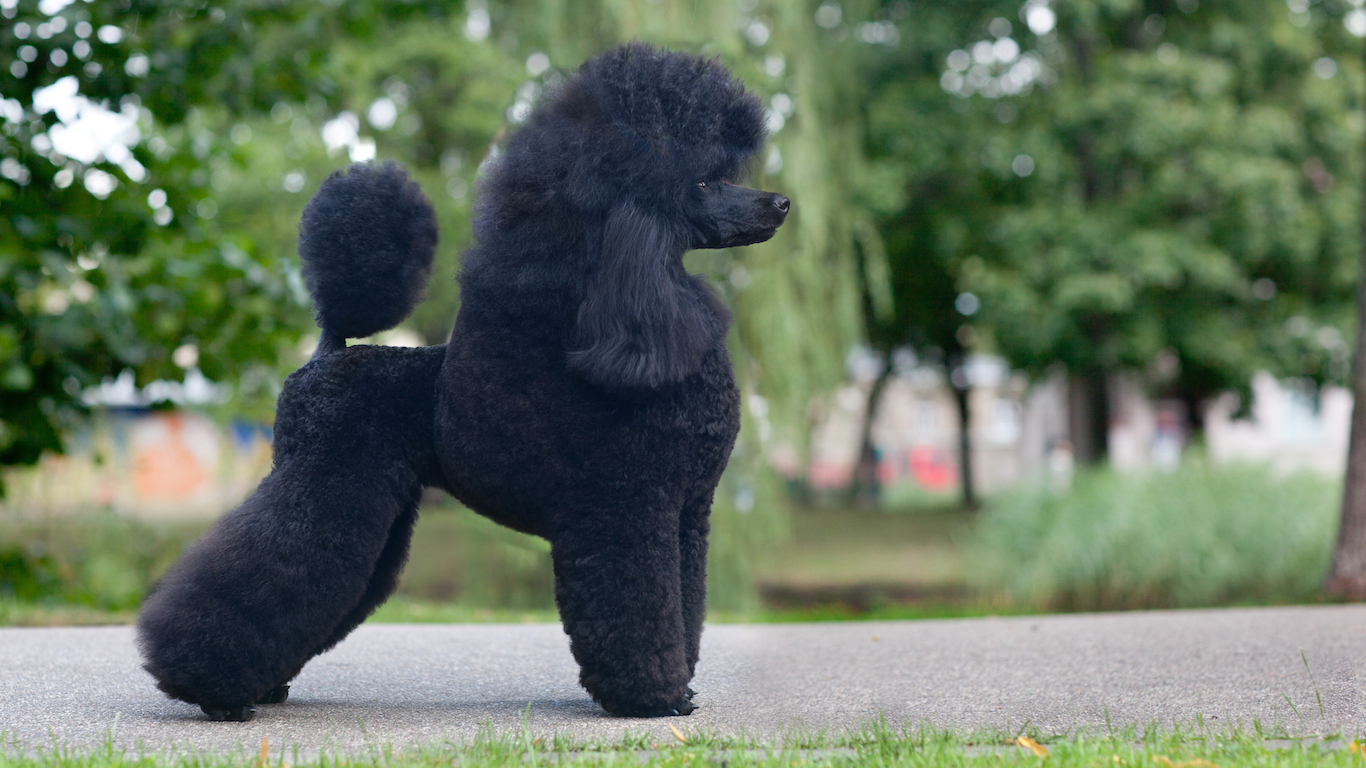
2. Poodle
> Height for standard poodle: over 15 inches
> Weight for standard poodle: 40-70 pounds
> Life expectancy: 10-18 years
Poodles come in different size varieties, including standard, miniature, and toy. Regardless of stature, these dogs have plenty of smarts. They are skilled at many dog sports and activities and often win Best in Show prizes at major competitions.
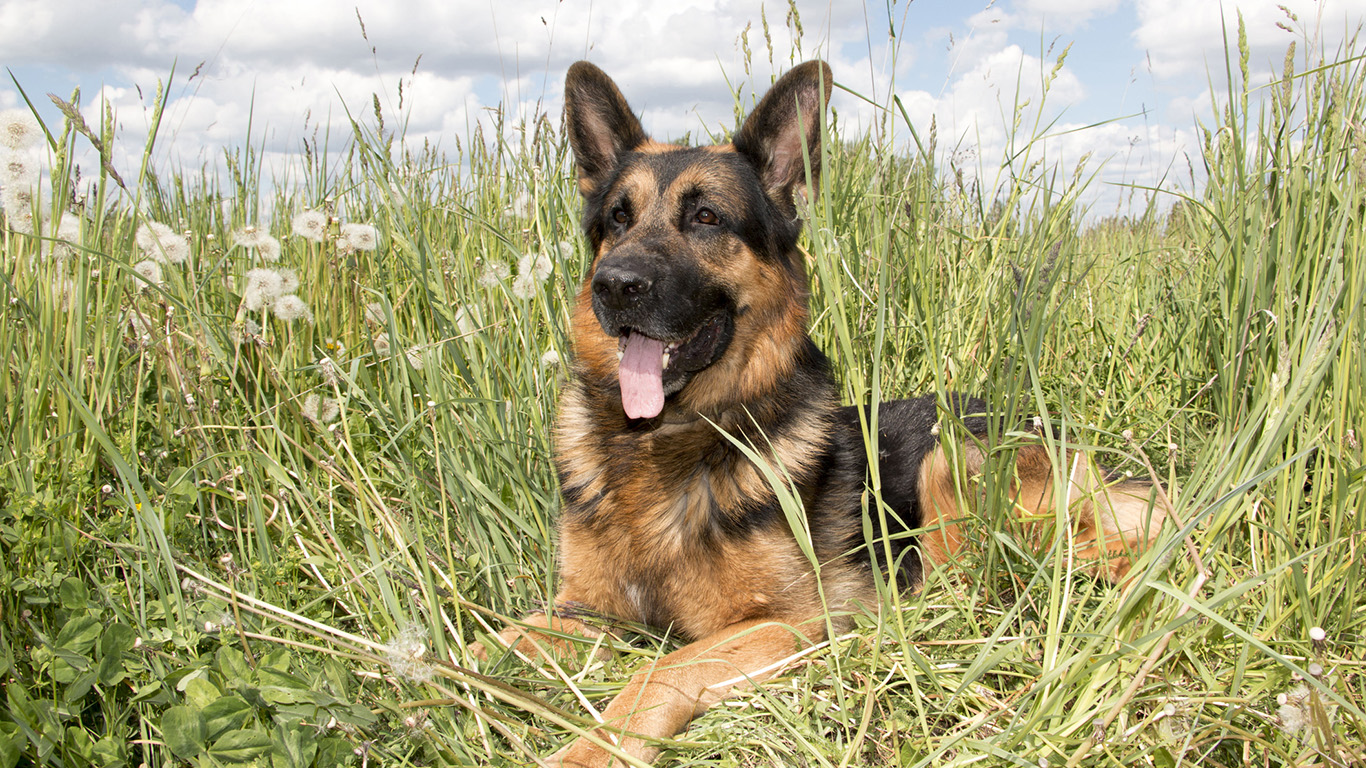
3. German shepherd
> Height: 22-26 inches
> Weight: 50-90 pounds
> Life expectancy: 7-10 years
The German shepherd is the second most registered breed by the AKC. Originally bred for herding sheep, it has become the first choice for many roles because of its intelligence, trainability, and obedience. German shepherd roles include disability assistance, search and rescue, and police and military work.

4. Golden retriever
> Height: 21.5-24 inches
> Weight: 55-75 pounds
> Life expectancy: 10-12 years
Golden retrievers aren’t just smart but have a great work ethic too. They are often used as guide dogs, in search and rescue, and – as their name suggests – for hunting. Their many other endearing characteristics, including patience and playfulness, make them great pets.
[in-text-ad]
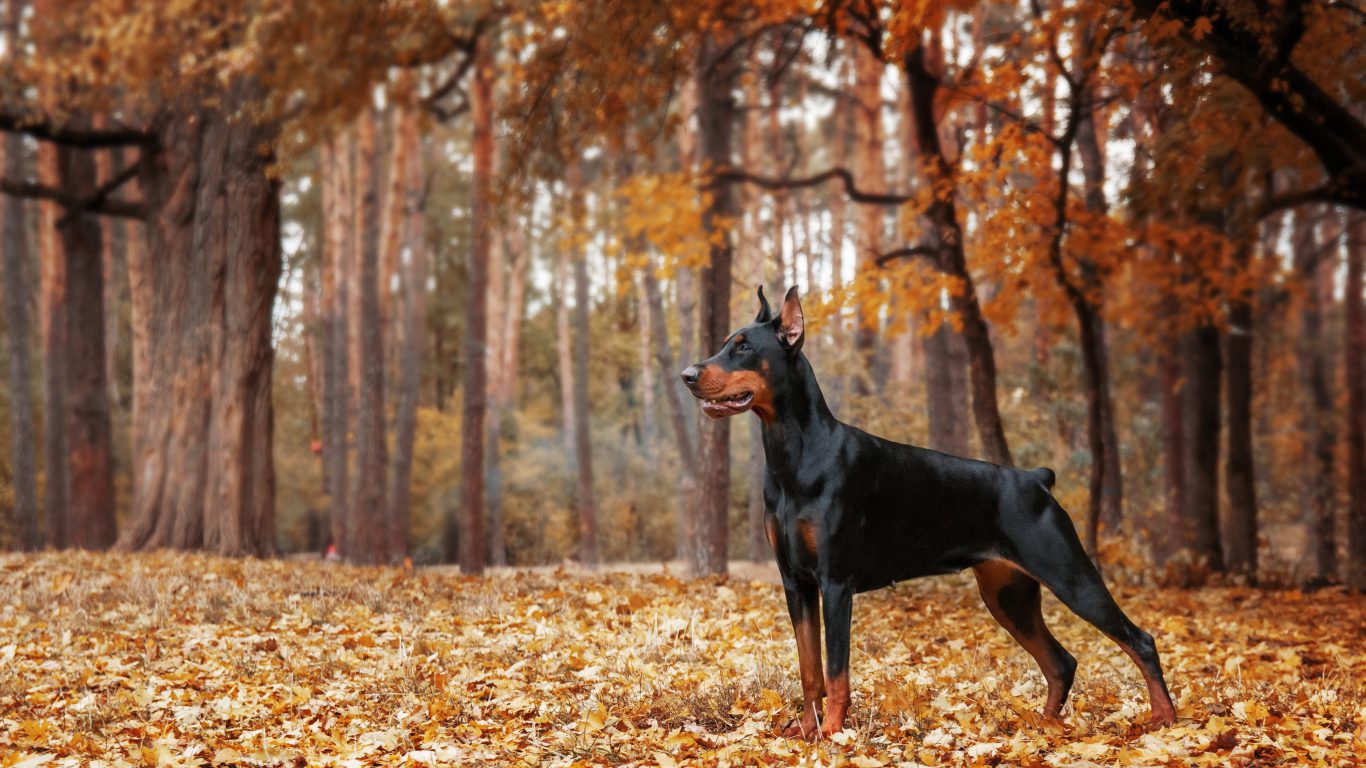
5. Doberman pinscher
> Height: 24-28 inches
> Weight: 60-100 pounds
> Life expectancy: 10-12 years
The Doberman pinscher was first bred by Karl Friedrich Louis Dobermann, a German tax collector who wanted a dog that would protect him in his sometimes dangerous job. As well as being one of the smartest breeds, the Doberman often ranks very high in obedience and trainability. That makes it popular with police and military forces around the world.

6. Shetland sheepdog
> Height: 13-16 inches
> Weight: 15-25 pounds
> Life expectancy: 12-14 years
This breed was originally bred to tend the small sheep of the Shetland Islands. Because of its intelligence, Shetland sheepdogs are quick to understand and obey commands. While it’s loyal and affectionate, which makes it a great pet, it also tends to be reserved towards strangers, which makes it a great watchdog.
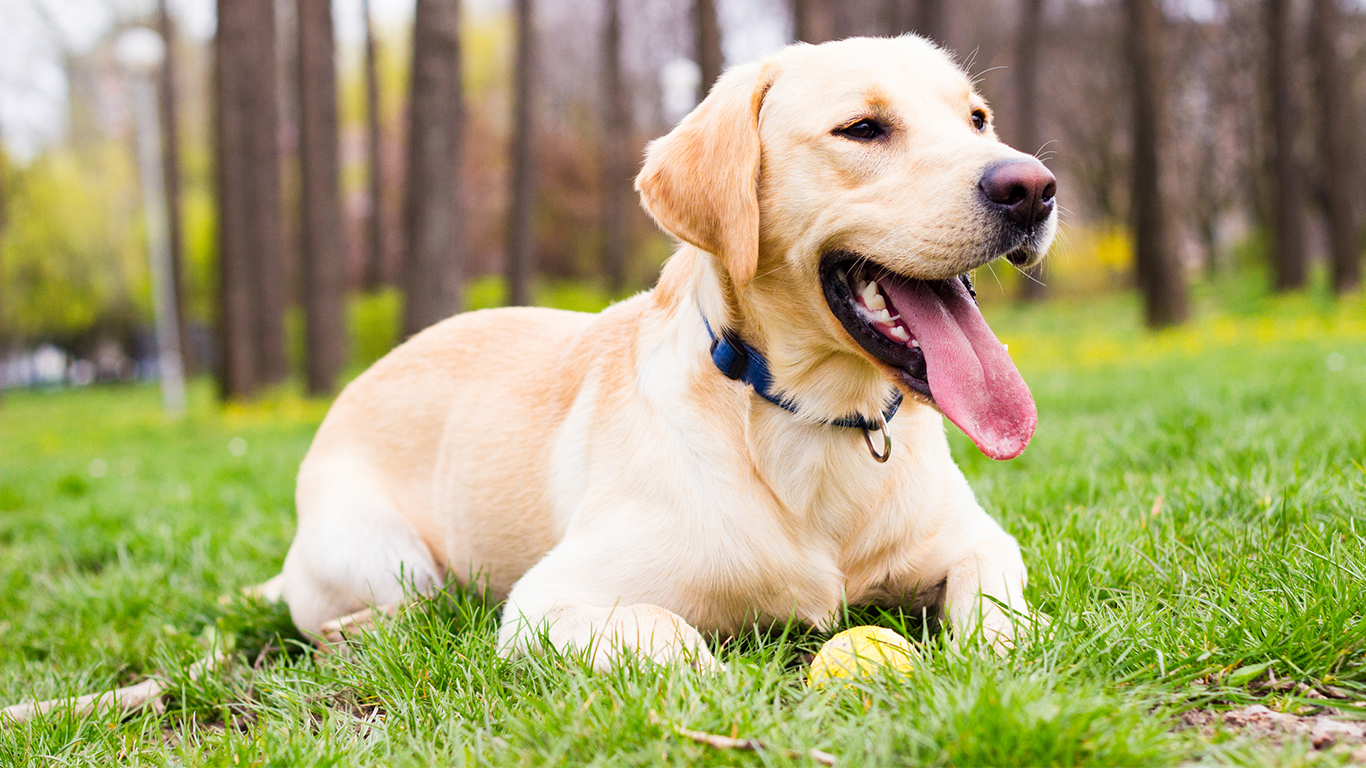
7. Labrador retriever
> Height: 21.5-24.5 inches
> Weight: 55-80 pounds
> Life expectancy: 10-12 years
The Labrador retriever is the most popular breed in the United States, according to the American Kennel Club. It is also one of the most sought-after breeds for challenging work, whether as guide dogs for the blind or search and rescue. When lives are in danger, you want a dog that is smart and dependable – just like the Labrador retriever.

8. Papillon
> Height: 8-11 inches
> Weight: 5-10 pounds
> Life expectancy: 14-16 years
This breed gets its name from the shape of its ears – “papillon” is French for butterfly – but it’s also known as the continental toy spaniel. Smart, alert, and playful, the papillon makes a great pet. As a bonus, it has a relatively long life expectancy.
[in-text-ad]

9. Bloodhound
> Height: 23-27 inches
> Weight: 80-110 pounds
> Life expectancy: 7-9 years
The bloodhound is famous for its sense of smell and tracking ability. The breed is used by police forces around the world to find missing people and escaped prisoners. It is instantly recognizable because of its wrinkled face and large drooping ears. Sadly, the Bloodhound is one of the shortest-lived dog breeds.
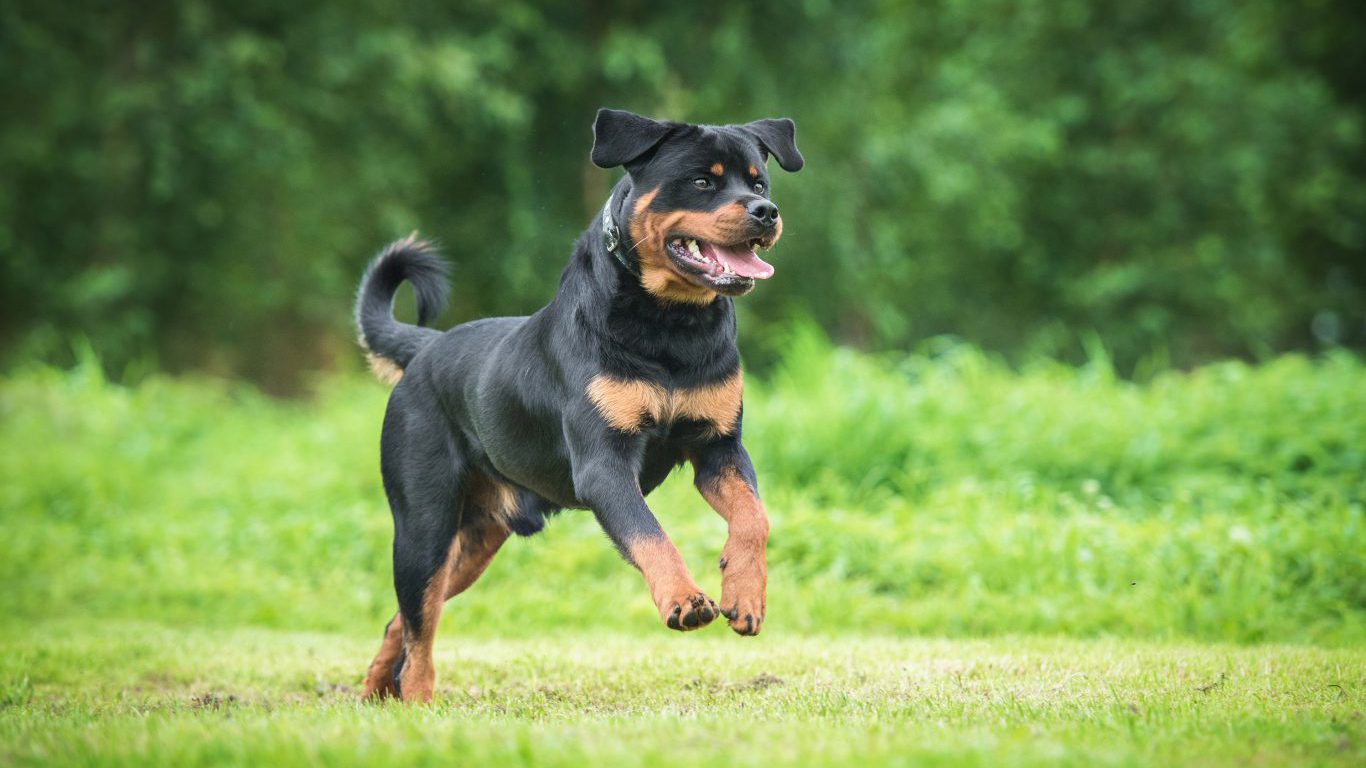
10. Rottweiler
> Height: 22-27 inches
> Weight: 77-130 pounds
> Life expectancy: 8-10 years
The Rottweiler is one of the oldest herding breeds and may have been working with humans since the days of the Roman Empire. The breed combines intelligence, strength and endurance. Unfortunately, the Rottweiler has sometimes been portrayed in the media as aggressive, but as the AKC says, it is “a calm, confident, and courageous dog.”
Take Charge of Your Retirement In Just A Few Minutes (Sponsor)
Retirement planning doesn’t have to feel overwhelming. The key is finding expert guidance—and SmartAsset’s simple quiz makes it easier than ever for you to connect with a vetted financial advisor.
Here’s how it works:
- Answer a Few Simple Questions. Tell us a bit about your goals and preferences—it only takes a few minutes!
- Get Matched with Vetted Advisors Our smart tool matches you with up to three pre-screened, vetted advisors who serve your area and are held to a fiduciary standard to act in your best interests. Click here to begin
- Choose Your Fit Review their profiles, schedule an introductory call (or meet in person), and select the advisor who feel is right for you.
Why wait? Start building the retirement you’ve always dreamed of. Click here to get started today!
Thank you for reading! Have some feedback for us?
Contact the 24/7 Wall St. editorial team.
 24/7 Wall St.
24/7 Wall St.


